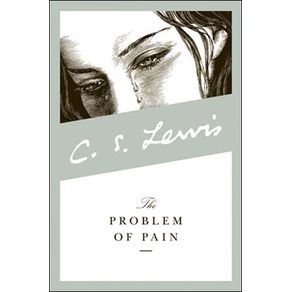The Problem of Pain answers the universal question, "Why would an all-loving, all-knowing God allow people to experience pain and suffering?" Master Christian apologist C.S. Lewis asserts that pain is a problem because our finite, human minds selfishly believe that pain-free lives would prove that God loves us. In truth, by asking for this, we want God to love us less, not more than he does. "Love, in its own nature, demands the perfecting of the beloved; that the mere 'kindness' which tolerates anything except suffering in its object is, in that respect at the opposite pole from Love." In addressing "Divine Omnipotence," "Human Wickedness," "Human Pain," and "Heaven," Lewis succeeds in lifting the reader from his frame of reference by artfully capitulating these topics into a conversational tone, which makes his assertions easy to swallow and even easier to digest. Lewis is straightforward in aim as well as honest about his impediments, saying, "I am not arguing that pain is not painful. Pain hurts. I am only trying to show that the old Christian doctrine that being made perfect through suffering is not incredible. To prove it palatable is beyond my design." The mind is expanded, God is magnified, and the reader is reminded thathe is not the center of the universe as Lewis carefully rolls through the dissertation that suffering is God's will in preparing the believer for heaven and for the full weight of glory that awaits him there. While many of us naively wish that God had designed a "less glorious and less arduous destiny" for his children, the fortune lies in Lewis's inclination to set us straight with his charming wit and pious mind.



